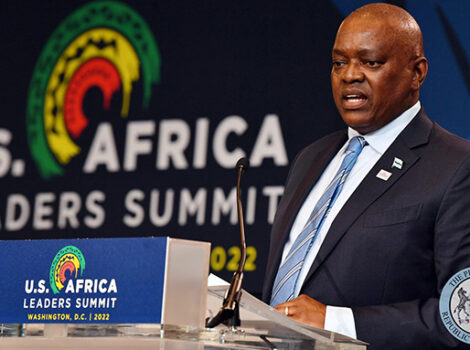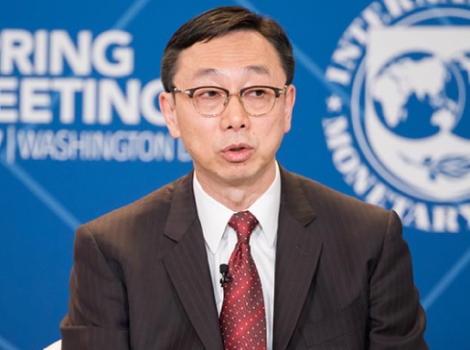
Botswana is months away from shaking off its three-year-old greylisting as a tax haven by the European Union (EU) after a deal signed recently with the Organisation for Economic Co-operation and Development (OECD), an economic and trade coalition of developed countries.
Botswana has been on the tax greylist since the EU first published it in December 2017 and has remained on the list through 11 updates that have seen some nations removed and others added. The adverse listing, due largely to the EU’s discontentment with Botswana’s tax regime and exchange of information, is seen as a disincentive to both foreign investment as well as local companies’ ability to trade with the world, as the country is seen as a tax avoidance and evasion haven. Botswana’s Ambassador to France, Mustaq Moorad signed the OECD deal in Paris, on behalf of President Mokgweetsi Masisi on September 29, with Head of the EU Delegation to Botswana and SADC, Jan Sadek telling BusinessWeek that Botswana was set to be removed from the greylisting ‘within months’.
The deal, known officially as the Convention on Mutual Administrative Assistance in Tax Matters (MAAC), signals that the EU and 140 other members of the MAAC acknowledge that Botswana has addressed areas of concern around its tax regime.
“Botswana has delivered on its commitments and reviewed potentially harmful tax provisions and legislations,” he said, on the sidelines of a briefing on the MAAC last week.
“To be able to become part of the 141 country convention, Botswana has had to make several adjustments and it has not been easy, especially during these difficult times of the Coronavirus pandemic.
“Being a part of this convention gives Botswana the legal basis to fight tax evasion and avoidance, provides for the exchange of information on taxes and also enhances the country’s international reputation on good governance and taxes, which is critical for attracting investment.”
He added: “What is left is for Botswana to ratify the agreement and tend to other outstanding matters, which are far less difficult than the road to signing this deal has been.
“We are looking at a matter of months before this listing ends and this is something Botswana should communicate to the world as an additional positive coming out of the country.”
Sadek said EU finance ministers had agreed to extend the deadline for the MAAC’s ratification to the end of next year, instead of August 2021, in recognition of the present difficulties countries are encountering around COVID-19. Tax Policy Director in the Ministry of Finance and Economic Development, Boikanyo Mathipa told BusinessWeek officials would continue to work as though the deadline was still August to keep up the momentum towards removing the greylisting.
“Greylisting is not a good state of affairs,” she said. “Investors would not want to come to a country and other countries shun you.
“When you are greylisted and you travel outside, you may not be allowed to open a bank account in certain countries.
“Being greylisted makes other countries look at you as a country that has a lot to hide, a country where tax criminals can go and hide their assets.
“It was not easy getting to the agreement because we had to get our laws looked at by those 140 other members, looking to say ‘can we allow Botswana to become one of us.”
“It’s going to be easier going through the ratification and other processes left, than when we were going through the process of being allowed to sign.”
BURS acting Commissioner of Operations, William Nkitseng explained that signing onto the MAAC would underline Botswana’s willingness to exchange information with other countries and adhere to the highest tax standards available globally. He said Botswana would be able to access tax information of entities coming in from outside the country and also gain technical assistance in picking tax trends that attempt to circumvent gaps in local law. Botswana’s pending removal from the greylist will come as a huge relief for Masisi’s government, which has placed improving the ‘doing business’ environment as a national priority.
Since December 2018, the greylist has been declining from 63 countries to the current 32, which besides Botswana also includes Namibia, eSwatini, Australia, British Virgin Islands, Turkey and others. In the latest update, the EU added four more countries to its existing blacklist of eight, being the United Kingdom’s Cayman Islands, Panama, Palau and Seychelles. Seychelles, like Botswana, had been in the greylist since December 2017, before its blacklisting on Tuesday.
Source: http://www.mmegi.bw/index.php?aid=87487&dir=2020/october/23



